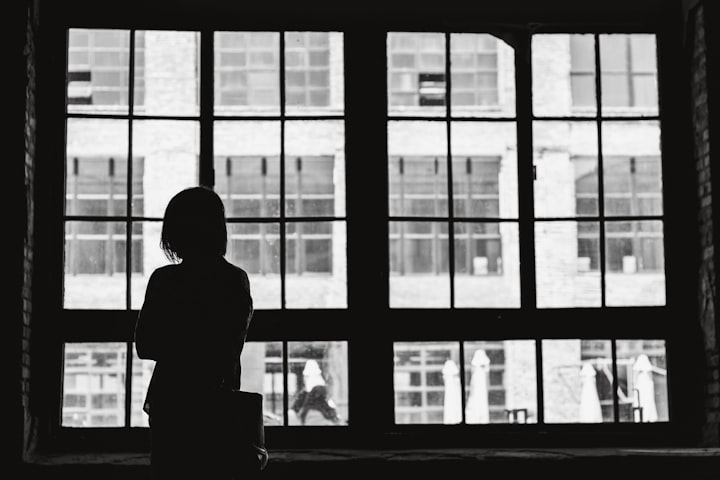My Mental Health Journey: The Struggle for Care
For six months, I struggled to get decent mental health care

In March of this year, I was admitted to St. Joseph Mercy Hospital in Ypsilanti, Michigan for suicidal ideation. I stayed in the ER for 8 hours until I was admitted to the on-site psych ward.
After a two week stay in their psychiatric unit, I was discharged. The plan was for me to start a partial hospitalization program at New Oakland Family Centers the day after my discharge. Unfortunately, New Oakland had no record of me and I was placed on a waiting list.
Five days after my discharge from St. Joe’s, I fell sick with the COVID-19 virus. When a spot opened up in the partial program, I was unable to accept it.
After 2 and a half weeks of isolation, I couldn’t take it anymore. I overdosed on oxycodone in an attempt to end my life.
I was taken back to St. Joe’s. Because I had COVID, I could not be admitted to their psychiatric unit. Instead, I was transferred from the ER to one of the dedicated COVID wards. I stayed in isolation for 9 days at St. Joe’s.
During those nine days, I had minimal access to mental health professionals. I spent my time listening to music.
Then, I was transferred to Henry Ford Kingswood in Ferndale, Michigan.
At Henry Ford Kingswood, I was denied the mental health care that I desperately needed. There were no support groups. There were no groups held over the weekend. I never met the psychiatrist overseeing my case. To top it all off, the staff was verbally abusive, neglectful, and disrespectful. One staff member got into a yelling match with me and several times, staff failed to check in on patients for hours on end. It was truly one of the most atrocious experiences I have ever had in a medical facility.
After being discharged, I started a partial hospitalization program at St. Joe’s. My psychiatrist committed me again just three days into the program because I was still exhibiting extreme symptoms of suicidal ideation.
Once again, I was admitted to St. Joseph Mercy 1 East. I stayed there for two weeks.
After my discharge, I made the decision to start utilizing Washtenaw Community Mental Health for case management services. Unbeknownst to me, this meant I would lose my therapist, whom I had grown incredibly attached to and I saw through St. Joe’s.
I was devastated. I had tried to do something to improve my mental health care and it blew up in my face and in mid-June, I overdosed on Aspirin.
Yet again, I found myself at 1 East. This time, I only stayed for a week before being transferred to Crisis Residential Services (CRS).
A few weeks after I was discharged from CRS, I started seeing a therapist and started going to a Dialectical Behavioral Therapy (DBT) group.
Then, on August 19th, I was raped by someone I considered to be a very good friend of mine. All of my suicidal ideation came rushing back in full force and less than two weeks later, I found myself back at St. Joe’s.
During this most recent visit, it took 2 days for me to be admitted to the psychiatric unit. For others, it took 5 days or more..
For 2 days, I stayed in a windowless room in the ER with nothing but my book and basic cable for entertainment. One day, they forgot to give me dinner and after confronting the staff four times, I was finally given some snacks — two and a half hours after the dinner trays had arrived on the unit.
After being admitted to the unit, I found myself in the middle of a very tense atmosphere. The unit had a dense population of people suffering from extreme schizophrenia and/or extreme bipolar disorder.
Needless to say, there was a lot of noise. Eventually, some of the patients started bullying me.
The stress overwhelmed me. I started to focus on coping with the stress and found scarce time and energy to deal with what had brought me to the unit in the first place.
I was at 1 East for a little under 2 weeks. The psychiatrist and social worker agreed that staying any longer would serve no purpose other than to stress me out more.
I was discharged on September 9th and on September 13th, I started the partial hospitalization program at New Oakland Family Centers in Ann Arbor.
To my dismay, the program consisted of 6 hours of group therapy with little to no one-on-one therapy. There were no activities. No coping skills were discussed. It was just talking and an occasional worksheet.
Worse yet, the group therapist inserted his own opinion into the discussion, often veering into the inappropriate. He made assumptions about patients and, in turn, came off as invalidating and unsupportive. Once, another patient said I should forgive my rapist and the therapist agreed with them. Another time, the therapist compared vaccine mandates to requiring tattoos then went on to compare vaccine mandates to what the Nazis did to the Jews. He also said that the people who stormed the capitol on January 6th did so because “they didn’t feel heard.”
On my fifth day in the program, I spoke to the supervisor of the program and requested they discharge me. They agreed to do so almost immediately without consulting with the group therapist or with my outside care team.
It was not my choice to attend New Oakland. The choice was made for me by the Washtenaw Community Mental Health and by my care team at St. Joseph Mercy Hospital. While I consented to attending the program, I was not told what the program would entail, what it would look like, or what the discharge process was. Many people in the program don’t find out when they will be discharged until their last day, sometimes just 15 minutes prior to the end of group for the day. Most people don’t know that they can ask to be discharged from the program. The only other alternative is to quit and be liable for the costs.
The struggle for adequate mental health care is an obstacle for many adults. Mental health care, on the whole, is trivialized and underfunded and has a tremendous lack of oversight. To make matters worse, mental health facilities everywhere have been filling up faster than ever during the pandemic.
But to what avail? If the follow-up is inadequate, what purpose does hospitalization serve?
The lack of diversity of care for adult mental health is, frankly, an embarrassment. Without a more diverse range of care, more people will continue to fall through the cracks. It’s easy to say, “Something is better than nothing” but, in reality, that is just putting a Band-Aid on a broken leg.
If you are having thoughts of harming yourself, please call the National Suicide Prevention Lifeline by calling 1–800–273-TALK (1–800–273–8255) or by using their online chat service.
About the Creator
Emy Deshotel
I am a budding writer with publications in the Ann Arbor Observer, The Huron River Review, and MLive. I also contribute on Medium.com and work as a freelance writer for various companies






Comments
There are no comments for this story
Be the first to respond and start the conversation.